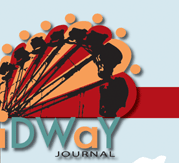


 |
|
|
|
|
|
|
|
|
|
|
|
|
|
|
|
|
 |

| It would be a good night, now, to tell him I'm pregnant. Though, I'm not. Behind him, below John Wayne, brushing his hair, he can't see me feeling my belly as if I was. But of the summer and desserts, I feel the stomach rising. As if. It is Neurontin for the pain that makes his arms twitch in bed as he obsessively reaches and calls for the needle-nose pliers he hallucinates beside him. His body working, working. Still he wants to be active. In another all night of work and not sleeping dad coaches him to fish, avoids the hunting subject, and tells him to breathe. Above all, breathe. "Did you get one," Dad asks. Papa catches a fish in the sick bedroom air, throws it back. "I threw it back," Papa says and settles against the down pillow. We know he longs to do something with his hands, like changing breaker boxes just a few months before, or changing ceiling fans like the one at the bank. Of our family, and what I don't say, he coached me. "You need to learn how to tune out like me. I could go into the bank, all those women gossiping. I just changed the ceiling fans. And they'd keep talking. And when I left? I left knowing less than I knew walking in." He hasn't forgotten the needle-nose pliers. And those needle-nose pliers aren't just for the ceiling fans or breaker boxes. They are, I know, for the ripping. To rip the black—to rip the 80%-lung-PET-scan black—out of his chest. "Why not white," I ask, to which there is no response. I remember what the doctor said. Sometimes nature wins. I brush his hair, slate and white, falling like waves to the blue pillowcase in the bathroom half-light—the pillowcase on the line just hours before. Gene Autry is yodeling which now seems more like crying. I am relieved he asked Meme to take all the guns out to his old shop. Something none had considered though, except Papa, were the blossoming bushes outside—blooming this particular year like a Roy Rogers ballad—sad and simultaneously free. "You have the pliers," I say. But he's too bright. I mean heavily medicated, there is a needling sharpness, precise and clear. And with the brushing—according to him hog heaven—he begins that talk. "I don't have the pliers, girl don't lie to me, what I need is my shotgun. Save us all a lot of misery. If I could walk outside, I would. It's why I asked your grandmother to move those guns." Talk like this brings on torrential flips of the stomach, like the flash flood that trapped my cousin on the top of a tree more than a mile from his truck, between San Marcos and here. The kind of talk I want to get out of him while we bite our tongues through our hearts. This is an illness he does articulate, often half whispering it would be better if someone, better for everyone, if someone would just shoot him with one of those guns my grandmother hid. Sometimes nature wins, I think, as I consider seeing more dead deer on the side of hot, concrete Texas roads this summer than I remember seeing any visit before. And it is then he speaks again of the beautiful bushes in the yard he remembers, just below the row of pine trees and nearby the oak my cousins and I climbed. In the August mid-morning, sleep-deprived and stepping outside, I notice the blooming fiery white, spilling over the porch swing. When I return, Papa laughs with the Albuterol. After the breathing treatment is done and the blood sugar taken, I try but can't define my notion of home. In the kitchen, the stove has three burners working. The leftover soup heats last night. Cream, veggies, and meat. It is a walk in the sun's heat screaming. Lunch is a call for home where no one has adequately defined that word. "Jesus Christ" I mutter, as I look at the leaves, considering dead deer. Back inside, the stereo comes on for no reason. Lunchtime, I say, bringing in the tray to set on his lap. He grins and asks for the Country Classic Collection again, and I pull back the forest green sheets made into curtains, raise him up on the electric hospital bed. Leaning in for his insulin shot, I imagine I hear the difference between the wrong hearts I chose and the heart that chose this man. "You know I used to be in a country western band," he says. I brush his hair more slowly and ask "really?" "Yeah, I mean we only had songs from people like Gene Autry, Roy Rogers. They were mostly religious. Gospel. Spiritual songs." He's relaxing, but the second-hand on the broken John Wayne clock is my stomach in knots. I say, "What was the name of this band?" He grins, "The Hickory Treetoppers." I grin back, because I love the name. "How many people were in this band," I ask. He pauses, I brush his hair. He jerks as with Neurontin. I pause. He says, "just one." I begin to laugh as he does. And he laughs until he's gone.
* I notice flowers that bloomed last weekend, dead now in the lunchtime sun. The hospital-gifts—like indoor plants and as hardy—are doing just fine. Green leaves stretch across shade on the porch towards the laundry line, and the coke cans in the trash bags are close to the ladders and plants. There could be bodies flooding through this space, dishonorable and gone. But at the edge of the house, there are the dead flowers on the 50-year-old-house's edge and tomatoes ripe for plucking hung carefully from old PVC pipe I wrapped those plants around. I leave and run as I've done. Run past Tyson's Hatchery & Mill, Evening Star Boot Company, Adam's Extract, the cows, and the chicken houses— moving past the overflowing dumpsters. I stick my hand out towards the trash, bent towards this fascination to what's lost. White oleander blossoms—rising out a path, plying their way south.
| ||||
| ||||
